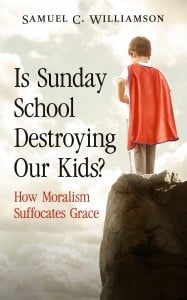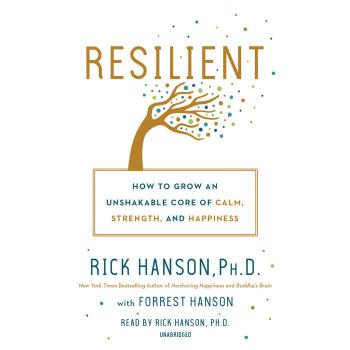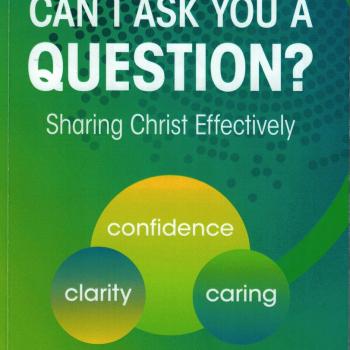Is Sunday School Destroying Our Kids by Samuel C. Williamson

Is Sunday School Destroying Our Kids by Samuel C. Williamson is a book with a premise. The church has a problem and it needs to be fixed. The problem that Williamson suggests is that with each generation, the Gospel is accepted, then assumed, then confused and then lost (8). God’s love comes first, then moral behavior. Instead, we have reversed the order.
Williamson insists that we have made the people in the Bible heroes because they were good. Instead, we should see them as broken sinners who commit great sins, from which point God uses. God can make the littlest great, but He can’t use the greatest until we become little (20).
Sin less. Work harder. Give more. This is the modern gospel, but it is not the true Gospel (28). Instead, it is Moralistic Therapeutic Deism (MTD). Sound moral behavior without the gospel is not the Gospel (30).
Williamson continues to talk about the dangers of teaching a false sense of Christianity by stating that we “begin with the Spirit and end with a to-do list.” The Pharisees were the sages who provided the wisdom through 635 laws. Williamson claims that the modern Christian publisher (with over 1500 titles of “to-do” wisdom) are the modern Pharisees (35).
Throughout the rest of the book, Williamson criticizes Christian cliches which teach us that the Law teaches us how to be good moral people. He makes the point that while the Law does that, it also points to as a mirror and teaches us how so far away from God we really are. We need God, not good moral points of behavior. The Law should point us to God’s grace (45).
Williamson shares stories about the difficulty in living with restrained behavior. We put restraints in our lives (accountability groups, rules, checks and balances) to keep us from sinning. Williamson suggest that the better method to making us live better lives is living by the Spirit (51). Rules help, but a relationship with God is much better.
In the Afterword, Williamson states that even though the book is not about Sunday School and its teachers, it is about grace (81). While I think there are a few good nuggets in the book, I sense that this book was written not out of a truly grace-filled attitude. The sound-bites, the references to Westboro Baptist Church, and the condescending approach that Williamson took to reach his point I found disappointing. Williamson spent many pages stating what he thought was wrong with the church (a resentment one can still feel as one reads through the book). Instead, he should have spent more time sharing what he wanted to share about – grace. He titled the book with a negative question: Is Sunday School Destroying Our Kids? I wonder if he really wanted to title the book with a positive answer. Perhaps it should be titled: I Have Difficulties with the Church But I Do Understand Grace. That would be a book worth reading.
Disclosure of Material Connection: I received this book free from the author and/or publisher through the Speakeasy blogging book review network. I was not required to write a positive review. The opinions I have expressed are my own. I am disclosing this in accordance with the Federal Trade Commission’s 16 CFR,Part 255.












